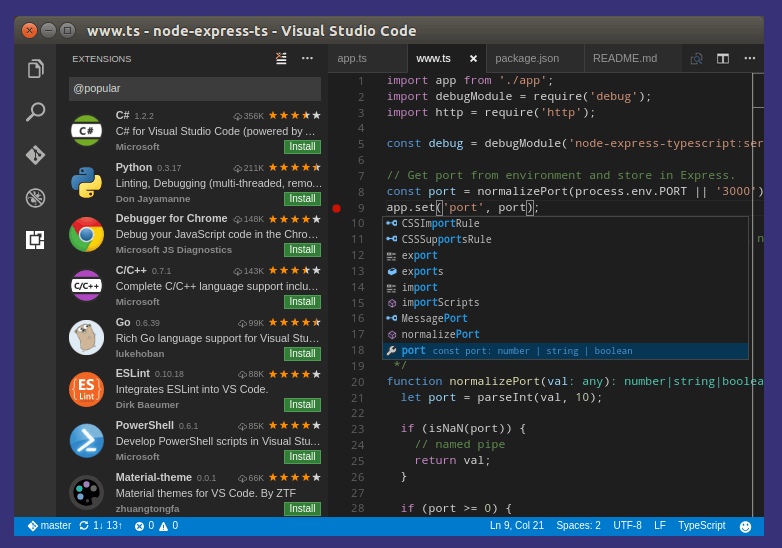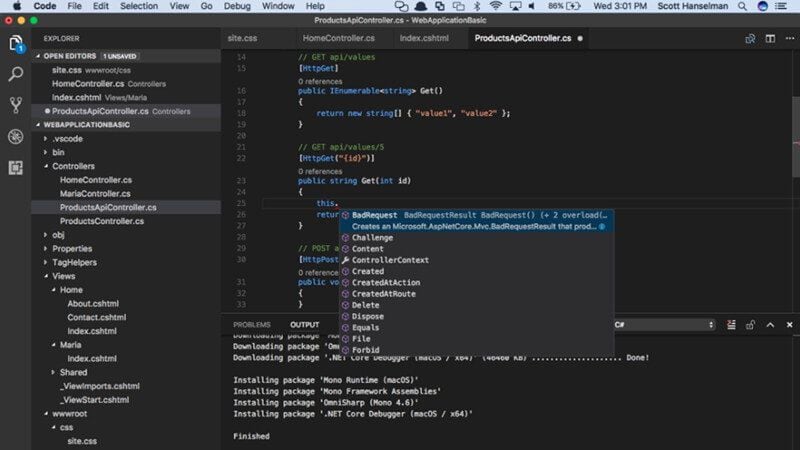
Of course it's a great great code editor, specially when you're from a Windows background, and used to use Visual Studio. So, that's all about how you can install visual studio code editor for Linux, and how you can uninstall it as well.

The above two commands should remove the VS Code application and all of it's generated data. If you're feeling that you're done with this application, there's no need to keep it installed then again use dpkg. The above screenshot is a sample, how the launcher looks on LXQt desktop.Īfter launching it for first time, the app should open up a web browser and take you to the documentation page, which is quite sufficient to learn basic usage. You can directly run the code command from a Linux terminal to directly start the code editor application.Īlternatively you can also use the application launcher menu to launch the Visual studio Code editor. If there's any dependency problem, you can check it with rpm -qpR code-*.rpm and install them manually. On any Linux distribution with rpm package manager, you can install it like below. It should automatically complete the package name. There's a little hack while installing, just type sudo dpkg -i code and hit the Tab key to avoid typing the exact package name. Assuming that you've already downloaded the proper deb file, under the ~/Downloads directory.Įnjoy free shipping and One-Day delivery, cancel any time. So, on any Debian based system, install it with the dpkg command. Here we've only one package to install, and there's not much package dependency at all to cause any problem. The installation process should be pretty easy, even for very recent Linux users. You can extract that and use Visual Studio Code from there. If you're not using any Linux distro which has dpkg or rpm package management, then there's also a tar.gz package containing compiled executable binaries. As example the deb package depends upon only 7 other packages, which are already installed on most systems. Or get the rpm package if you're using any of Linux distro which uses rpm for package management.īoth of these packages are pretty self contained, I mean there's very little dependency on other package.

Obviously if you're using a Debian based distribution like Ubuntu, download the deb package. rpm format are available for download from the official Visual Studio website.


 0 kommentar(er)
0 kommentar(er)
